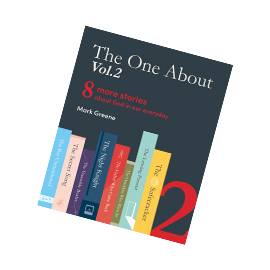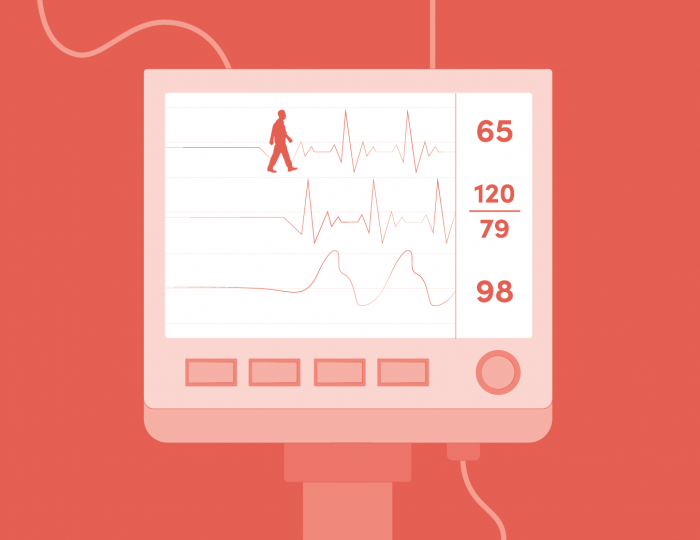Before Geoffrey came back, he was unarguably one of the smartest men in his profession. The MA thesis he wrote when he was 23 became European practice. It was the beginning of a career that led to honour after honour. Indeed, if you’d asked his family when he was forty, fifty, sixty, what the essence of him was, they’d have said, ‘His mind, his intellect.’ It was a mind with a prodigious memory and also a passion for poetry – he had hundreds of poems on the tip of his tongue.
It was 13 years ago when he came back. The medics called it a ‘heart event’, not a ‘heart attack’. And at first his wife and daughters didn’t know he’d come back. They just thought he hadn’t gone, that it had been close, very close. They thought that he’d recovered. But he hadn’t recovered, he’d returned.
After the event, it was a little while before Geoffrey told them that he’d come back. Born into a family of Jewish descent, he’d become a follower of Jesus in his adult years. Compared to his wife and daughters’ more charismatic preferences, he chose a measuredly traditional expression of his devotion to Jesus. He wasn’t prone to talk of miracles and the supernatural, so it was a surprise when he told them that during his ‘heart event’, he had been consciously aware of pure divine love and white light drawing him to itself. And in the peace of that prolonged moment he knew he had a choice: to go on into the love and the light, or to go back. Geoffrey remembers thinking that his affairs were all in order, and that his wife would be well provided for, and that his elder daughter was 21, and surely well set for her future. So far, so very good. However, Lucy, his younger daughter, was just 15. And she, he felt, still needed him. And so he decided, quite consciously, to come back.
And he did.
To begin with, the family thought that he had been spared for some great task, some fresh challenge that would transform things in his field. But the ‘event’ turned into a process. The loss of oxygen to the brain in the subsequent operation led to degenerative neurological disease. And one inexorable thing led to another: medical retirement just a few years later, housebound now for eight years, without the power of speech for three, bedbound for a year.
And so Geoffrey lies in bed.
And the father, whose intellect and success had meant he was so very often absent, and who came back for Lucy, his 15-year-old, is now always present. For Lucy, it is at once the great burden in her life, and one of the very best things in her life – the man lying in bed, her father. It’s been such a strain on the whole family: the physical effort, the mental and emotional exhaustion, the increasing social isolation and sense of abandonment as friends and family drift away, the feeling of being left behind by the pace of other people’s able-bodied, ableminded lives. And yet for all the agony her father’s condition has brought them, his very constancy and presence have been an image for Lucy of God’s love and acceptance.
What, we might wonder, is the measure of a life? Does a life that can do nothing have no value? Is the one with dribble on their chin not as precious as the one with poetry on their lips?
Yes, they wish he would be healed, and continue to pray for it. They wish that he could go back to the way he was before. They wish there was not dribble on his chin. Still, it’s surprised them that they are more proud of him now, love him more now, than when he shone like a supernova in his field. It is the way he has looked at them these past years. It is the way he looks at them now, except on those very difficult days when he turns away. It is the way he focuses on them. The presence of God is with him. He looks at them with such sure and pure love. And they can see that the essence of this man is not, as they once thought, his great mind, but his abiding love.
Five years ago, Geoffrey was given a year to live. This last year Lucy has twice given him CPR on the kitchen floor. They don’t know how much time they have together, but they long ago chose the verse for his headstone:
‘Having loved his own who were in the world, he loved them to the end’ (John 13:1).
About that, they are in no doubt.
—
Mark Greene
Mission Champion, LICC
***
What would you say is the measure of a life?
Is there someone whose character exemplifies godliness to you? How might you affirm them?
‘“The Lord does not look at the things people look at. People look at the outward appearance, but the Lord looks at the heart.”’
1 SAMUEL 16:7b

Submit Your One About
Each of us will have moments or stories like these, but we easily forget or don’t see them. Yet they can be such a source of encouragement to us, and to others.
Why not take some time to tell us your own story of God at work in your everyday? We’d love to hear it – and, with your permission, share it to help others see how God might be working through them!

